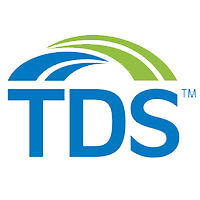TDS warns customers: Facebook Messenger used to steal money and identity
The social media messaging network provides easy access for scammers.
Facebook Inc.’s mission is to give users “the power to build community and bring the world closer together.” Unfortunately, this includes bringing scammers closer to their targets: Facebook users.
Within the last few months, con artists have been using Facebook Messenger, the messaging application within the social media network, as a means of promoting “phony grants,” according to the Better Business Bureau (BBB) Scam Tracker.
The scam begins with a congratulatory message from another user, often a Facebook friend, offering a sum of money, according to the BBB. The message requires a down payment of some sort, or personal information, such as a social security number, in order to receive the money.
Scammers often create a trustworthy profile to achieve their goals, such as one similar to that of a relative or a close friend, or even hacking into accounts, according to the BBB.
Some scams include fake celebrity accounts that are created in order to trick people. For example, fake “Mark Zuckerberg” Facebook pages have been created to obtain money, according to the New York Times. In one case in particular, a user sent $200 in iTunes gift cards to obtain the prize — an investment that eventually led to a loss of $1,000 and many months of time.
To help consumers avoid being caught in these scams, local internet service provider TDS Telecommunications offers tips for Facebook users protect their social media account (plus their time and bank account) from harm. Some tips include:
- Create strong passwords. Craft complex, yet memorable and separate passwords for all your accounts. Mix letters, numbers, special characters, and spaces for greater protection.
- Be skeptical of friend requests. Only accept requests from users you know, and only after you closely scrutinize their profiles. Be wary of accepting second requests from people you are already connected with on the social platform.
- Be safe when posting publically. Log out of social media sites when using a public or shared computer or device.
- Be careful with downloads. Only download trusted and necessary software on your computer or device.
Most notably, though, being a skeptical social media consumer means protecting your data online as one would offline.


